|
I often send emails to people when I am concerned about something that is happening, when I want to point something out that is not right, or feel that my words may make a difference in the world. I have decided that I am going to start publishing emails like this on my blog. This is in the hope that perhaps someone reading my blog may be in the same situation and me, and reading my words may help them make the time/energy available to send a similar letter. Small steps to social change! (I am going through my archives, and this letter was sent to a Principal of a primary school following Robin Thicke's song 'Blurred Lines' being played at a junior school disco (children aged 5 - 7) last year.) Dear [Principal], First of all, thanks so much to you and the teachers for spending your Friday night entertaining children! You time is really appreciated. I just wanted to comment on some of the music played at the disco tonight. I realise it is an issue I am hyper-sensitive to, given my line of work, but I think it is an important issue that needs to be addressed. (The portrayal of sex and sexuality in music is one of the topics I speak about in seminars). This week there has been quite a bit of media attention given to Robin Thicke’s song ‘Blurred Lines’, (and the parody of it done by the Auckland Law Review) and it has widely been described as a song supporting rape culture, sexist attitudes and as being overwhelmingly misogynistic. I was therefore very surprised when it was played at the junior school disco this evening. This is the song here. Watching five year olds dance to the lines “I'll give you something big enough to tear your ass in two” left me feeling deeply uncomfortable. Others will sum it up the issues in this song far more eloquently than me – in particular this article. Children should not be exposed to music that they are not capable of critically deconstructing. We discuss many things in our home, but [my five year old son] is not ready for a discussion on rape culture. I know that some people will say “the kids don’t understand the lyrics anyway”. However if we send the message that this song is OK now, how do we then tell them it isn't right when they do understand? I propose that for future events, all songs are thoroughly vetted before going on the playlist. Kind regards, Rachel Hansen * The Principal responded immediately, agreeing with my concerns.
0 Comments
I was recently in a discussion where some women who had not breastfed their first child said they wanted to try to breastfeed their second child. This is a topic close to my heart as I didn't succeed in breastfeeding my eldest child, but am enjoying a great breastfeeding relationship with my second child who turned two last week. I want to pass on some of the things I learned in my journey).
Here is my TOP TEN to-do list for parents who want to succeed in breastfeeding their next baby:
Anyone else got any tips / ideas / anecdotes to pass on? I would love to hear them! (As you may have guessed, I am passionate about helping women breastfeed. I completely understand that some women can't breastfeed exclusively: but for the small minority of women who don't produce enough/any milk, I want them to know that a breastfeeding relationship is still possible - breasts are way more than just milk! And I want for EVERY woman to have the option of choosing donor milk should they wish. I have written in more detail about my breastfeeding experience here.) 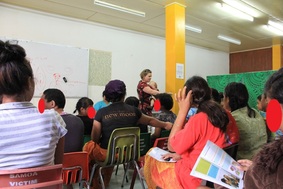 I was privileged to spend some time with some gorgeous girls in Samoa last year. As my blog posting has been sporadic-at-best as of late, this has sat in my 'drafts' way too long! Background In 2013 I was planning a family holiday to Samoa. As someone passionate about social justice, I like to ‘give back’ to the communities I live in and visit. I had helped organised an aid package to go to Samoa Victim Support Group previously, and I thought I may be able to offer a workshop to the girls at their residential shelter. Wellington-based charity SpinningTop connected me to their President Lina and we organised for me to provide a workshop for them. What I Did When we arrived in Apia I met with Lina at the SVSG offices and she gave me more background on their organisation. We discussed what I would be teaching the girls and I gave Lina a couple of boxes of supplies I had brought with me – Air NZ had kindly agreed to transport these for free. The boxes contained some donated stationery items, disposable sanitary pads donated by Kotex, as well as re-usable packs from Days For Girls NZ (containing underwear, cloth pads, and a wash cloth). I spent a morning with approximately 30 girls - the girls were fantastic and really engaged, and the staff were very supportive. The girls were gorgeous, so full of smiles and laughter. They are survivors for whom I have the utmost of respect for. Lina had told me some of their stories, and these girls have all been on traumatic and heartbreaking journeys. Most of them are with SVSG because they are survivors of sexual violence, for many of them this is incest. Many of them have been pregnant as a result of this violence. Tragically in many cases these girls have been disowned and blamed for bringing shame on the family. SVSG provides safety, education and a home for these girls. SVSG also manages the legal process to bring justice for these children. The girls had lots of questions and I felt like we could have spent a lot more time together. The level of knowledge and understanding of how their bodies work was very low. Most knew very little about the menstrual cycle, pregnancy and childbirth - despite there being pregnant girls and girls who had already birthed in the group. My (then 10 month old) daughter Nina accompanied me and I found that having her there was a good ‘icebreaker’ with the girls. The girls enjoyed chatting and playing with Nina as they warmed up to me. As it turned out Nina ended up sleeping in my front-pack for most of the morning as I taught - it was more than 30 degrees in the classroom so we were rather sweaty by the end of it! I was a little taken aback when TV cameras arrived just as we were starting. They filmed the introductory part of my session and then in the middle of the session I was called out for an interview. I was a little anxious about this as had had no warning and I wasn't sure what angle they were going to take, but I kept it very neutral and emphasised the importance of all people having a good understanding of their bodies and sexuality. It came across well on the news that night. I left SVSG feeling like what I had done that day with the girls was but a drop in the ocean. I felt like I had empowered the the girls with knowledge of their bodies, but also knew there was so much information we didn't cover. SVSG were hugely grateful for the workshop, but I wanted to do more. These girls really touched my heart. There is a huge need for ongoing body/sexuality education as well as antenatal education for the pregnant girls. SVSG has been on my mind a lot since. Looking Forward Earlier this year SpinningTop approached me to see if I would be interested in offering a more comprehensive programme for the girls at SVSG. With SpinningTop's support, I am returning to provide a one-week programme in August 2014. I am currently fundraising for supplies (food, baby formula, educational supplies) for SVSG and am hugely appreciative of any donations. For more details on this project, please click here. 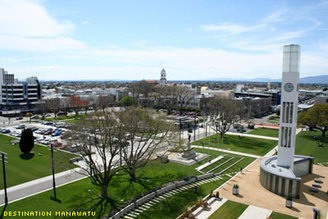 I am sick and tired of victim blaming. I am sick and tired of seeing directives for women on how to "keep safe". I am sick and tired of seeing resources put into "keeping women safe" while the equivalent amount of energy is not directed towards educating their would-be attackers on not attacking. Earlier this week I was dismayed to see my own town was jumping on the bandwagon when I read the headline "City angel' to keep eye on women". It caught my attention because it sounded a bit creepy. Women need to have an eye kept on them? (I guess we do if you subscribe to the patriarchal notion that we probably shouldn't be out and about by ourselves anyway because we will probably use our evil forces to tempt men to attack us. But I digress.) The article states that "Young women out on the town in Palmerston North now have their very own "angel" to look out for them....in the hope of reducing harm and victimisation of young women as a result of excess alcohol consumption." NO! Stop right there. Victimisation is NEVER the RESULT of excess alcohol consumption! The only reason a young woman is victimised is because SOMEONE ELSE assaulted/raped her. End of story. Being generous, I tried to interpret the initial sentence as meaning that the 'Angel' would help protect the women from other people (presumably men) who had consumed too much alcohol. But no, it wasn't anything to do with the men - the 'Angel' "would work with young women in particular to make them aware of the harm intoxication can bring, as well as how to stay safe in the city." I absolutely agree that alcohol can cause harm to oneself. Heck, I have been there. But we need to be clear that alcohol never ever ever causes a woman to be victimised. The council is putting money into making women change their behaviour, but ignoring the fact that the problem is actually the rapists. In doing this they are putting the blame squarely on the females. Furthermore, the big issue with this sort of "crime prevention" is that any behaviour change of potential victims simply displaces the crime. As a friend of mine commented, this approach simply says "Don't get drunk girls, stay sober and make sure another girl is victimised instead." I am just so weary of the same-old same-old "watch out women you need to be more careful" line, when our leaders could equally be saying to men: "Hey, the vast majority of rapists are men - are you sure you are safe enough for us to let you out on the streets?". I think the concept is excellent - someone helping out young people in town. Someone educating young people on the harm alcohol does. But to gender it, to solely focus on females, doesn't solve the bigger problem. The problem is that we have a rape culture that enables men to justify their actions and leaves women scared to walk through the Square at night. The follow-on effect this has is that victims are made to feel they didn't do enough to stop their attacker and the attackers can lean on our rape culture and point out all the things his victim did "wrong". (To learn more about rape culture I highly recommend you visit this site) I would feel far more at ease with this initiative if the same amount of energy was given to having consent conversations and education with the males in town. If this is happening already and I am unaware of it, then FABULOUS and I will eat my words and issue a hearty apology (whilst also pointing out that that story obviously wasn't worth newspaper headlines). Come on Palmerston North City Council, where is the money and resources for consent education for males out on the town? Why must it start with changing the women? Why is it always about us, and our behaviour?  Sexuality education hit the headlines again yesterday. I usually cringe when I see sexuality education in the media, because the media tend to usually take a shock! horror! perspective, that is usually unjustified. (I have written about this before here for some background). Yesterday's story in the Sunday Star Times arose out of a statement on a true/false quiz presented to students at an Auckland intermediate school - the statement read: "If a boy has no hair on his chest, he is homosexual." Before we jump on the OUTRAGE! bandwagon, I think the story needs to be critically examined. Sure, in isolation this statement looks an odd thing for a group of 11 year olds to be dealing with. But we need to consider this statement in its context: I imagine the quiz used was similar to this one recommended on the Ministry of Education’s website. The statement would have been part of an activity to get kids talking and to stimulate discussion of myths surrounding our bodies and sexuality. The students would have gone through the statements with the teacher and critically analysed each one, deciding whether there was any measure of ‘truth’ in them. Presumably, the statement in question would have been debunked by the teacher and a discussion could have ensued about how people’s bodies are very diverse, but sexual orientation has no bearing on physical characteristics. This is an important discussion to be had, as many students this age have absorbed a message that homosexual people are inherently different to heterosexual people in many ways other than simply preferring a particular gender/sex for their romantic partner. Rather than the SHOCK! HORROR! response that intermediate students were exposed to the notion of ‘gay’, I think we need to focus on the secondary message contained in the article: that many New Zealand teachers are under resourced and undertrained to teach sexuality education. The Education Review Office 2007 report on sexuality education in New Zealand backs this up, stating that “The majority of school sexuality education programmes are not meeting students’ learning needs.” Many teachers have completed their teaching qualification with very little instruction on sexuality education (and sometimes none at all). Then they begin their teaching career and are expected to teach sexuality education, with no professional development offered. And, as this article points out, usually with very few resources. The Principal in this article stated that the reason they were using a Johnson & Johnson quiz was because there was a lack of resources from the Ministry of Education. What other subject in the curriculum needs to rely on a multinational corporation for teaching resources? (Note that Family Planning do provide a number of quality resources and I would recommend teachers check these out before deciding to use commercial “free” resources) As was also mentioned in the article, every school is required to consult with the community every two years about sexuality education, so parents are aware of what is being taught. A number of people I know have expressed surprise at this comment, as they have never been consulted by their children’s school. This consultation process is really important and it goes some way in avoiding panicked parents calling in the media. I really encourage parents to view their school’s sexuality education policy, and to participate in the consultation process when (if?!) it occurs. You can see what each school is required to do here. Unfortunately, articles such as the Sunday Star Times' do nothing to increase teachers' confidence in their ability to teach sexuality education. (Which, it should be noted, is a compulsory part of the curriculum until Year 10). Many teachers find teaching sexuality education challenging anyway, the last thing they also need to be worrying about is the media jumping in and creating a moral panic about what is happening in their classroom. Schools need to work with their teachers and families to ensure that quality sexuality education is available to every child in New Zealand. ***I am really interested in learning about how different schools go about the sexuality education consultation process. I would love it if you could leave a comment or contact me regarding whether you are aware of a consultation process occurring at your school, and if so, how it is done. Many thanks! This is the update of the Diva/Playboy situation from Suzanne Culph at Change.org. See my earlier blog post for some background on the issue.
"Huge news! Reports are coming in from supporters in Perth, Brisbane and Adelaide that Diva staff have been removing some Playboy products from display. The campaign is working - but Diva management continue to dig in their heels and are refusing to withdraw Playboy nationwide. Diva’s brand is taking a beating - both online and offline. They’re monitoring what their customers are saying about them online every moment. Taking a respectful message about why you signed the petition directly to Diva right now could tip the balance. Click here to post a personal message on Diva’s Facebook page. It’s important you speak from the heart about why this campaign matters - but if you need some help, here are some ideas on what to say: • Why you’re personally against promoting a porn brand like Playboy to girls. • As a parent and customer how it will influence your shopping decisions. • The impact of the porn industry on women and perceptions of women. The petition started by Collective Shout on Change.org has transformed into a movement of parents and shoppers, determined to hold Diva to account for pushing Playboy products on to young girls. And we’ve been phenomenally successful, some Playboy merchandise has been shoved under the counter “because of the controversy.” Diva’s General Manager Bianca Ginns continues to say they’re just following a fashion trend. Let’s make sure Diva know that selling the porn industry to young girls will never be fashionable - click here to share with Diva why you support the petition by posting on their Facebook wall. Thanks for all that you’re doing, Suzanne, for the Change.org team." With the media furore over school sexuality education over the past week, many parents have been asking what their expectations of their child’s school sexuality education should be... So here it is, Part One of the non-official Concise Guide to School Sexuality Education in NZ...
The sexuality education prescribed in the current curriculum is a far cry from the sex ed most parents would have received when they were at school. For many, this “education” now serves as a hilarious dinner party story, for others sex ed barely existed or was so terrible that all memories have been banished. Indeed, my own high school sex ed was taught by a very embarrassed science teacher who managed to get through the entire 'reproduction' unit without once mentioning the word ‘penis’ – he simply referred to that thing as a "John Thomas”. And we were told we must always make sure we put the Johnny Condom on the John Thomas. The standout memory from the ‘period talk’ at primary school was the horror of the “pad burner” - a raging inferno in the girls toilets with which we were instructed to put our used pads. I am not sure I ever raised the confidence to use that thing! (I am told they no longer have these at schools - phew!) Today I want to address three main questions that I have been asked over the past week: 1. How much influence do I, as a parent, have on the sexuality education programme at my child’s school? The most important thing for parents to keep in mind is that school sexuality education programmes are a partnership between the school and the community. As such, schools are obliged to consult with their community every two years on the content of their health education programme. According to Section 60B of the Education Act 1989, every school Board of Trustees is required to inform the school community about the content of the sexuality education programme and consult with members of the school community regarding the way in which the school should implement this education. Following this consultation, a school sexuality education policy and programme are constructed. In reality, the definition of ‘consultation’ can be interpreted quite broadly. Some schools send out information in school newsletters, others organise information evenings. Some schools don’t do much consulting at all. This doesn’t mean they are ‘bad’ schools, it’s just that the reality for schools is that they are operating in a jam-packed curriculum in an environment focussed on literacy and numeracy. Sometimes sexuality lingers at the bottom of that ‘to do’ list. Some schools put a lot of effort in to the consultation, and many receive absolutely no feedback from their community. 2. What if I don’t want my child to participate in sexuality education? There are many reasons why parents may consider withdrawing their child from the school sexuality education programme. Indeed, following the media frenzy last week over sex ed, I guess more parents will be considering this. It’s been widely mis-reported in the media this week that parents need to sign a consent form for their children to participate in a school sexuality education programme. They don’t. Some schools choose to do this, but it is not required. Legally, every school is obliged to inform parents what the programme consists of and no contact from a parent conveys to the school that they are happy to have their child participate in sexuality education. There is provision under section 25AA of the Education Act 1989, for parents to write to the principal to request that their child be excluded from sexuality education. Note that this exclusion does not apply to other times during the school day when a teacher deals with a question raised by another student that relates to sexuality education. 3. But I don’t want my child learning about contraception! If you feel this way, it’s important you discuss this with your Board of Trustees and Principal. If you do feel strongly about this issue you may decide to withdraw your child. However you need to know that the 1990 repeal of section 3 of the Contraception, Sterilisation and Abortion Act 1977 removed all restrictions on the advice and supply of contraceptives to those under 16 years of age. Young people of any age now have the right to access information about contraception and to be supplied with contraceptive products without parental consent. In reality, this means that if your child wants information about contraceptives, the school is able to provide this, regardless of parental consent. Part two coming up later this week. It will answer the question: "What SHOULD my child be receiving as part of a quality sexuality education programme?" **Disclaimer – there are some schools and some teachers doing an absolutely fantastic job delivering sexuality education in New Zealand. I applaud these people. Those that are struggling with it are struggling because of a multitude of reasons, not easily addressed in a 200 word attention-grabbing newspaper article. If you are a parent and are concerned about the sexuality education in your school, I urge you to contact the Principal and your Board of Trustees to discuss your concerns. Over the past few days the New Zealand media has been in a bit of a frenzy about sexuality education. The headlines say it all: Sex ed shock for angry parents, Sex at 14 - I learned all about it in class, Parents complain about sex ed's 'plastic black penis', Shock over sex education subjects.
As the outpouring on talkback radio and social media sites demonstrates, sexuality education is an issue that lies very close to our hearts. There have been some very controversial statements made, and I certainly don’t agree with them all. But I am delighted that this topic is getting attention from the media and the New Zealand public. Because sexuality education in New Zealand is not in a very good state. An Education Review Office (2007) report The Teaching of Sexuality Education in Years 7 to 13 found that "The majority of school sexuality education programmes are not meeting students’ learning needs.” Some schools are providing fantastic programmes – but many schools have programmes in need of an overhaul. In some schools, the Ministry of Education's sexuality education requirements are ignored. The quality of sexuality education programmes has far-reaching impacts on our community’s health and well-being. New Zealand has one of the highest rates of sexually transmitted infections and teenage pregnancies in the OECD. And 20% of New Zealand 13 year olds have already had sexual intercourse. It’s crucial we get sexuality education right. Sexuality education is a compulsory part of the curriculum from Years 1 – 10. When I explain this to parents, I sometimes hear a gasp of shock – “What?! Sex ed in Year 1!!!!” At which point I think it is really important to define sexuality education. It's not just about intercourse! According to the Ministry of Education, when learning about sexuality students will consider “how the physical, social, mental and emotional, and spiritual dimensions of sexuality influence their well-being.” It is supposed to be holisitc and it’s all about age-appropriateness. Sexuality education in the early primary years could be as simple as labelling body parts – eyes, ears, neck, penis, toes. Sexuality is inherent in all of us and our education system can't simply ignore it. Most of the media commentary this week has been regarding the topics being taught by teachers. Questions have been asked about the qualifications and experience of the teachers delivering this very sensitive topic. Before we start a witch hunt I think it’s important to examine how sexuality education fits in to our education system. In high schools, sexuality education is usually delivered by the Health and PE department. My experience is that about 95% of Health & PE teachers specialised in this subject for the PE, rather than the health. This means that all too often, sexuality education in high schools is delivered by a reluctant PE teacher. In Primary and Intermediate schools, sexuality education is usually integrated into the programme by the classroom teacher. I have contacted Colleges of Education for some details about the amount of sexuality education instruction in their degree and diploma programmes, but their answers have been vague and elusive. I get the impression – “not much”. This has been verified by speaking to teachers. I have spoken to some primary teachers who claim that they received absolutely no instruction on sexuality education within their qualification. Upon graduation, they are expected to teach sexuality education immediately, with very little (if any) professional development. (If anyone can give me any more detail on this, please do contact me!) Many teachers I meet hate teaching sexuality education, but they have to, so they are in a tough situation. When I am in a school delivering a Good Talks programme I am usually greeted by teachers with sighs of relief and thanks. For a variety of reasons, many teachers just do not feel comfortable discussing some of the aspects of sexuality education with their classes. And I totally understand this. I believe that sexuality education taught badly is worse than no sexuality education at all. It's such a delicate topic, and all too easy to get it wrong. When I am presenting in schools I like to precede the student sessions with a parent seminar. This ensures that the parents are on the same page, understand what I am discussing with their children and gives them the chance to ask questions. It also gives them the knowledge and confidence to support their children in their sexuality education. Because parents will always be the most important educators of sexuality. I am delighted this conversation is happening in the New Zealand media. I want it to continue. But I want the witch-hunt aspect to stop, as talk-back radios try to out-compete each other in the-most-dreadful-sex-ed-story-they-have-ever-heard. I want the conversation to turn to a discussion about what sexuality education is, why we need it, and how our communities can best support schools to deliver it effectively. - Click here to read an earlier post on ridiculous journalism + sex ed. - Blog posts coming up later this week on sexuality education content (what should schools be teaching?) and the role of the parents and wider community in creating school sexuality education policies. **Disclaimer – there are some schools and some teachers doing an absolutely fantastic job delivering sexuality education in New Zealand. I applaud these people. Those that are struggling with it are struggling because of a multitude of reasons, not easily addressed in a 200 word attention-grabbing newspaper article. If you are a parent and are concerned about the sexuality education in your school, I urge you to contact the Principal and your Board of Trustees to discuss your concerns. Last week I offered some tips to support parents in talking to their girls about puberty and getting their first period, because now more than ever, parents need to have the knowledge and confidence to be able to discuss sexuality with their children. The work of parents also needs to be backed up by quality holistic sexuality education within all our schools.
If, like many parents, you assume that your child is already getting basic sexuality education at school, think again. Despite the fact that more than half of Australian teenagers are sexually active by the time they are 16, there is no mandatory, comprehensive Australia-wide sex-education policy. In New Zealand, sexuality education is a key area of learning in the National Curriculum, which means that it must be taught at primary- and secondary-school levels. Yet a 2007 report by the New Zealand Education Review Office concluded: “The majority of school sexuality education programmes are not meeting students’ learning needs.” In both countries, there are some schools that offer fantastic programs, but there is no guarantee that your child will be one of the lucky ones. Many parents say to me, “Oh, but my child has no interest/no idea/no awareness about anything to do with sexuality.” This may be true, but their classmates do, and their classmates are talking. If a child isn’t getting information from her family or her school, she will turn to her friends or the internet. I don’t have to persuade you that googling “vagina” is probably not going to throw up much useful advice for a 10-year-old. So I urge schools to do everything they can to meet the physical and emotional needs of students as they reach puberty. Make it age appropriate. As I discussed in an earlier post, puberty is starting earlier for girls, and it is important that they understand what is happening to them before they get their first period. This means that schools need to rethink the age at which they teach students about puberty. In New Zealand for at least the past 40 years, students have been taught about puberty usually in years 7 and 8. As it is not uncommon for girls to start menstruating at age 9 or 10 now, I encourage schools to teach it in years 5 and 6. Don’t segregate! Ensure that the boys in your school are equally well informed about female puberty as the girls, and vice versa. The boys need to be in on the period talks, and the girls need to understand erections and breaking voices. If girls and boys understand what the other is experiencing and why the changes happen, bullying is likely to be greatly reduced. When we had the puberty talk at school, the boys and the girls were separated. I never knew what the boys learnt, but afterwards they were fascinated with our ‘pad packs’ that we’d been given, and they stole them and teased us, demanding to know what we had been told. We were all really embarrassed and didn’t know what to say to the boys. I thought that it would be really naughty if we told them – because obviously our teacher didn’t want them knowing. Because they weren’t taught about it, it made it seem like periods were taboo and secret from boys. — Kelly School was tough. The boys used to grope us to see if we were wearing a pad, then announce to the entire corridor that we had our periods. Or they’d go into your locker looking for pads to steal and stick all over the corridor. — Sophie Stock your library with books and pamphlets on puberty. Age-appropriate books and take-away pamphlets are fantastic for students to access in their own time and when they need answers. Primary schools can be reluctant to put sexuality and puberty books in the library for fear that parents of younger students will complain. One solution that I have seen in some schools is to have a special part of the library dedicated to the older students. These students like it because it’s their special place, and it’s somewhere they can go for answers if they don’t feel comfortable asking their teachers or parents. Make sure students know where to go for help and advice. Students need to know who to go to for support at school if they have concerns or questions about puberty or sexuality. Make sure that girls also know where a supply of pads are kept in case they are caught out. Many schools have these at the administration office, which is always staffed during the day. It is worth having a brief discussion with staff at the start of the year about what to do when a girl gets her period and needs support, as some staff will be unaware of the stress that periods cause some girls. I got my period for the first time in my first week of high school. I was mortified because I didn’t have a pad. My friend went and asked the lady at the front desk and she gave me one – thank goodness! I am not sure what I would have done otherwise. — Laura There was always the fear of getting caught at the far end of school from my locker, needing to change pads and having, in the time a teacher thought was acceptable for a loo stop, to run from one end of the school to another to get supplies. — Sophie Also be sure that girls can dispose of used pads and tampons appropriately. As the average age at which girls get their first period decreases, primary schools now need to make sure there are sanitary bins in the girls’ toilets. I urge parents to encourage their daughter's school to offer quality holistic sexuality education and to check what measures the school is taking to ensure girls are supported through puberty. In 2009 I was in a yoga class with the wonderful Nat from Zing. My mind was wandering to this seemingly far-off, unattainable goal of being a freelance educator - creating and delivering inspiring and empowering programmes that change people's lives. In a lightbulb moment I suddenly realised that I needed to start on that goal - NOW. There was never going to be a better time. By the time I got home from that class there was a plan in place. On reflection, I had been in great need of some destuckification and something about Nat's class got me on-track. (Thanks Nat!)
It's been quite a journey. I let go of the ridiculous notion that I would be a neglectful mother if my son spent time in a daycare (I compromised on two days a week and became a night owl. I also cried in the classroom the first morning I had to leave him). I created my own website on a $50 budget (yes, this one - it's nothing fancy, but don't think you need oodles of cash to get a website). I started writing again, and discovered I love it, and I started reading reading reading. And then I made sure I told the people who were writing the amazing stuff how great I thought it was. Most importantly I started to get out and about in the world telling people who I am and what I do. It took a fair amount of courage, because I don't think we live in a society where it's seen as admirable to 'think big'. I was clear in my mission: To empower youth to build positive relationships based on respect, love and healthy choices. I knew how I was going to do this. But I was stuck on a name. What do I call what I do? I got myself a Facebook Page and connected with some amazing people, but I didn't want to just brand myself as 'me'. It's going to be bigger than that. I got a little stuck again, trying to define what it was that I was going to be doing. Then I made a great decision: I would have this clarified by the end of these school holidays. The thing I love about deadlines is that it prompts me to action. I am one of those sorts of people who never reads the instruction manuals, but just jumps right in. It's not always a great result, and I admit I do break a LOT of stuff, but I am definitely a woman of action rather than contemplation. So, having set my deadline, I was ready to jump right in and could barely focus on anything else. (Warning: Hanging out with me can get monotonous if I am in a 'stuck on an idea' frame of mind). Last night I told my mother that I wanted this name to incorporate the idea that I wanted to encourage people to start having conversations, to be authentic and real and honest - to encourage "good talks". And then I suddenly realised I had it - "Good Talks". I couldn't sleep last night because I was too excited. This thing is launched already - I would love you to come and join the conversation. A few days ago I wrote a post about a radio station who were running a "Win a Wife" campaign. Along with many others, I thought this was appalling. We decided to gather together like-minded people in a Facebook page to share ideas and information about why this competition was not OK, and strategies to stop the competition. In six days we gathered the support of over 1200 people!
This campaign has been a huge learning experience for me on a number of different levels. Learning Experience #1 I have been saddened and horrified and depressed and angry at the abuse and pornographic images hurled at us. A few of the less-explicit examples can be found here. I learnt that there are a lot of people with lots of destructive anger out there. This vitriole is reason enough for us all to question what sort of sentiments this particular radio station is encouraging. *Update: If it's all getting a bit much, the best remedy is laughter. Do check out this post with a choice selection of some of The Rock's supporter arguments. Learning Experience #2 More importantly, I learnt that there are so many wonderful people out there who are so passionate about creating a just and equal society, and are willing to take action to make this happen. And I just loved connecting with them all. People sharing their knowledge and supporting each other. The Facebook page we created was just a vehicle that brought such people together. It was amazing to realise that a small action (creating the page) snowballed in to something so much bigger than we ever thought it would. AND WE MADE A DIFFERENCE!
Learning Experience #3 It was a beautiful summer evening this evening. My family was here for dinner and my little boy was being particularly gorgeous. (I know, I know, I am biased, but that's him this evening in the photo below - don't you think?). But I was so angry at the world, having spent the afternoon dealing with abusive people and deleting explicit photos off the Facebook page, that I couldn't enjoy the evening. I was grumpy and preoccupied. So I turned off my computer and went on a lovely walk with my wonderful sister. I raged about it all, and then I realised, over the past six days this campaign had consumed me. I had not been fully present with my little boy or husband, my garden is overflowing with needed-to-be-picked-yesterday produce and I have neglected my writing and positive work with teens and parents. I learned that neglecting these things I love makes me miserable. So I decided to step down from moderating the Facebook page. (Of course I remain an passionate supporter). And I will not publish comments from others on this blog attacking my stance on the 'Win a Wife' competition. I have had every 'argument' (and more!) thrown at me about this issue and remain strong in my conviction. I have a HUGE amount of respect, gratitude and admiration for people who are continually standing up for injustice and inequality (Catherine Manning, Melinda Tankard Reist, Sue Bradford... the list could go on). I am not sure I could ever do what you do - I would certainly need thicker skin! And for all those wonderful people who are writing the letters and emails and generally spreading the word that it's not OK to treat anyone as second class citizens - you guys are awesome. Discussing relationships is an important part of the sexuality education I teach. Young people are always eager to discuss the different social norms and expectations. It is also a topic that most parents approach with trepidtation. I have just watched this instructional video from 1951 about "what to do on a date"... 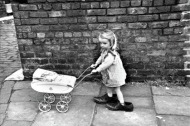 I viewed this video with a smile on my face, sighs of "how sweet" and thoughts of how lovely and simple things were back then.... Back to reality: there were just as many nerves and broken hearts as there are now. Teen pregnancy was common, it was just hidden in barbaric ways. Or young people were forced into marriages they didn’t want. Sexually transmitted infections were present, they were just hugely stigmatised and rarely treated. The risks of heartbreak, pregnancy and disease that were present in 1951 are still there now, but nearly fifty years on, these risks are magnified and that 'benchmark' age when children are exposed to these risks is becoming ever-lower. The concept of childhood is becoming increasingly short. - in 1951 the marketing concept of 'tween' had not been invented. The behavioural expectations of late-teens in 1951 are the behavioural expectations being thrust upon our pre-teens now. The tween phenomena has children wearing makeup, high-heels and parents taking them along to waxing salons. They hear it on TV, YouTube and social networking sites. This sexualisation of our children naturally leads to an early curiosity about sex and relationships. In order to be prepared for these pressures it is crucial that our young people are able to make safe decisions that will keep them happy and ensure their well-being. They need their parents support in this. More than ever, parents need to have the knowledge and confidence to be able to discuss sexuality and relationships with their children. Many parents say to me “oh but my child has no interest/no idea/no awareness about anything to do with sexuality.” This may be true, but their classmates are, and their classmates are talking. I posit it to the parents: if your child is not talking to you, they are talking to someone else and getting their information from them. What would you prefer? It’s never too early to start this ongoing conversation: make sure you don’t leave it a moment longer. I was navigating the supermarket yesterday, toddler in tow, chatting about all the products we were passing. A constant commentary of the products, decisions about what milk to buy, what colour the bananas are. Inane chatter to an outsider, but I love these outings with my son as he learns all about the world. We read the signs and I wonder aloud whether we need venture down that aisle. We see the ‘fish’ sign, we see the ‘beverages’ sign. We talk about the ‘baking goods’ sign and how we like to bake muffins at home. Then we come to the ‘feminine hygiene’ sign. I had passed such signs countless times before, but with a toddler soaking up all there is to learn, suddenly language has a whole new meaning and importance to me. My chatter is halted for a second - “feminine hygiene”? – and I am not sure how to explain these words.
To give my son a literal explanation, it seems that females must need products to sanitise themselves. Through a young child’s eyes, I look at the marketing – ahh, feminine hygiene products – these must make women don white leotards and dance, put on a skimpy bikini and run through waves, throw on high heels, skinny jeans and grab a microphone. And some have wings! Maybe women can fly after all! As I took a moment to ponder this, my son pointed at the ‘sanitary products’ and yelled out in delight “Mummy’s nappies!” I laughed and agreed - “Those are for women to use when they have their periods”. I could almost feel the man beside us scampering past all these ‘sanitary products’ reel in horror. I was recently alerted to a new advertising campaign by US tampon brand ’Kotex’. According to Mr. Meurer, of Kotex - “We’re changing our brand equity to stand for truth and transparency and progressive vaginal care.” Wow, ‘progressive vaginal care’ – the mind boggles! But thumbs up to them for attempting to ‘get real' in their advertising for their products, by mocking the traditional way that menstruation products are advertised. The advertisement opens with a woman declaring she loves her period, followed by “Sometimes I just want to run on a beach... Usually, by the third day, I really just want to dance... The ads on TV are really helpful because they use that blue liquid, and I’m like, ‘Oh, that’s what’s supposed to happen.’ ” The dialogue is illustrated by clips that had been used in previous Kotex advertisements, furthering the irony of the whole thing. But thumbs down to US television networks who, after viewing the original advertisement, barred the use of the word 'vagina'. Even a revised version, which referred to “down there” was deemed too explicit. To quote blogger Amanda Hess, "Now, the commercial contains no direct references to female genitalia—you know, the place where the fucking tampon goes." The way society frames language shapes the way we feel about things, talk about things. The language we use imposes a particular view of the world. The view promoted by the language of ‘feminine sanitary products’ is that women are dirty and need to buy things to sanitise themselves. Are women’s bodies and their natural cycles really that scary? I am not advocating graphic photography here, but can we not at least acknowledge what the tampons are for? Is the word ‘vagina’ really that offensive? I hope Kodex’s new approach to tampon advertising marks the beginning of a change in the language we use around menstruation. I can't help but think of all the out-there products advertising 'penile erectile dysfunction'. I think again of the world through my child’s eyes. If his sexuality education was left to the media, he’d grow up assuming that women need to buy ‘feminine hygiene products’ in order to wear tight white spandex and dance, or play beach volleyball in skimpy bikinis. He’d also think the ‘products’ were to clean up that funny blue stuff. But for now I am my son’s teacher, and I can filter most of this stuff for him. I dance most days, regardless of what day in my cycle it is, and I most certainly never wear white spandex. |
AuthorRachel is a writer and educator whose fields of interest include sexuality education, gender, feminism and youth development. Archives
November 2023
Categories
All
|

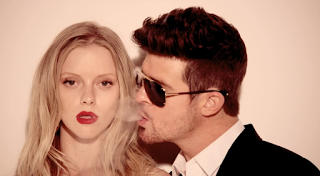
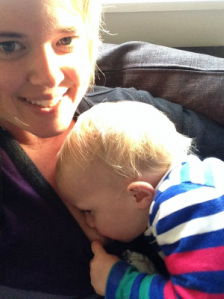
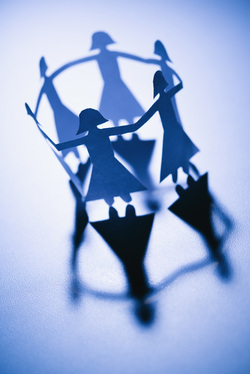
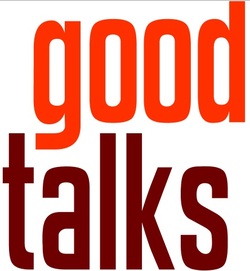
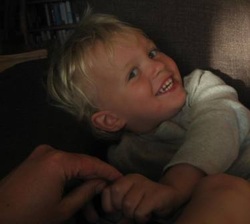

 RSS Feed
RSS Feed




